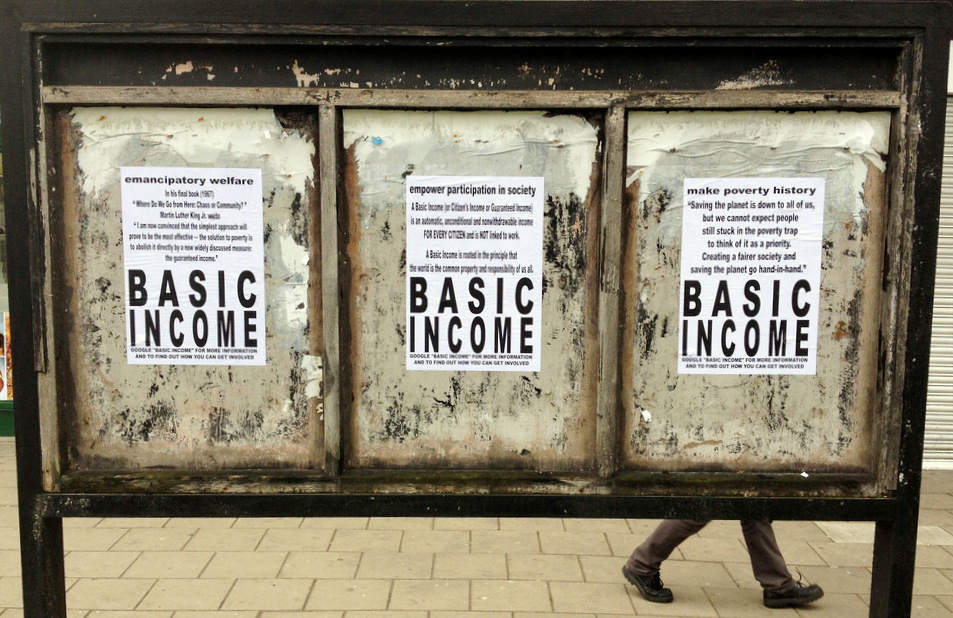Distribute as much money as possible and hope for a better tomorrow. Occult practices are spreading across European social policies. The Finns, however, decided to go even further and give all their citizens money for nothing. Although at first glance it may seem like a utopia, this could actually work.
A sample of two thousand randomly selected unemployed Finns became the subjects of a social experiment. Each month they receive a 560-dollar levy from the state – without any conditions or questions asked. There is, however, one catch: the allowance replaces everything else. Finns thus test the concept of universal basic income (UBI).
Although the idea is not new, except for circumscribed local experiments, universal basic income remains a highly theoretical concept. It brings together people from both ends of the political spectrum. The left sees it as a tool for a more equitable asset redistribution to alleviate the problem of poverty and income inequality. Lawmakers appreciate it as a simpler and cheaper alternative to a social system that does not care for the privacy of citizens.
Choice Between Extremes
In pure form, however, there is one major problem with UBI. It signifies a choice between two extremes. If the allowance for every citizen is reasonable (say, a minimum wage), it would be necessary to increase the state budget (and thus might result in either raising taxes or causing a larger deficit) rather significantly in order to finance such a system. But if the universal allowance was too low (at the levela enabling citizens to barely make ends meet), the most vulnerable groups of people would plunge into poverty. The system is therefore either too persimonious or simply too expensive.
The traditional social model, however, approaches the issue of such support in two ways: (1) Conditional allowances attempt to remedy the causes of poverty. This includes, in particular, pensions, family allowances or invalid’s benefits; (2) Income-related benefits that address the risk of poverty more directly, but do not reduce the incentive to work. Here, taxes, tax reliefs, or progressively reduced unemployment support, is in place.
The traditional model combines both approaches to balance cost and efficiency. In other words, by appropriate tools, they support those who need it. Well, that’s why it’s complicated.
Pragmatic Experiment
Only three groups of people support the substitution in the form of UBI: the left wing, which does not have a problem with the massive increase in public spending; those who do not complain about the drastic reduction of the social system; and finally those who cannot count.
And that’s how we get back to the Finnish experiment. Finns have turned pragmatic and do not test the UBI in a pure form, but only in such a form that really makes sense. UBI does not replace the entire social system, but only unemployment support. The logic of the experiment is as follows: If a worker feels secure in all circumstances, s/he will be more willing to find a lower-paid job, or at least a part-time job, which would otherwise not compensate for the loss of social benefits.
Revolution for Rich Landscapes
The basic question, however, is: Can money distribution really motivate people to find a job? It doesn’t seem like it. But this depends on the level of basic income. If it is high, people might lose the incentive to look for an employment. However, the financial side of the Finnish experiment is not a tricky one. EUR 560 is just a little more than the traditional unemployment benefit it replaces. Also, let’s not forget that the median wage in the country is almost EUR 3,000. The Finnish 560-euro stipend is therefore not much higher than the Slovak benefits for those in need.
The success of the concept will also depend on the country in which it is introduced. In an industrially oriented developing economy, things can be tricky. In an economy based on innovation, where improving work is the key, this approach might actually work. Several studies suggest that basic income security will enable people to use their talents and skills more effectively. It will allow them to search of the right job, where they could be happier and more productive, instead of taking the first job that comes their way. When finding a job that is really suitable, individuals might generate higher added value, earn more, and pay higher taxes as a consequence.
UBI therefore appears to be a reasonable solution for the social systems in advanced countries. Let’s hope it will work also outside of the theoretical studies. The Finnish experiment will hopefully prove that.
Translated by Martin Reguli



